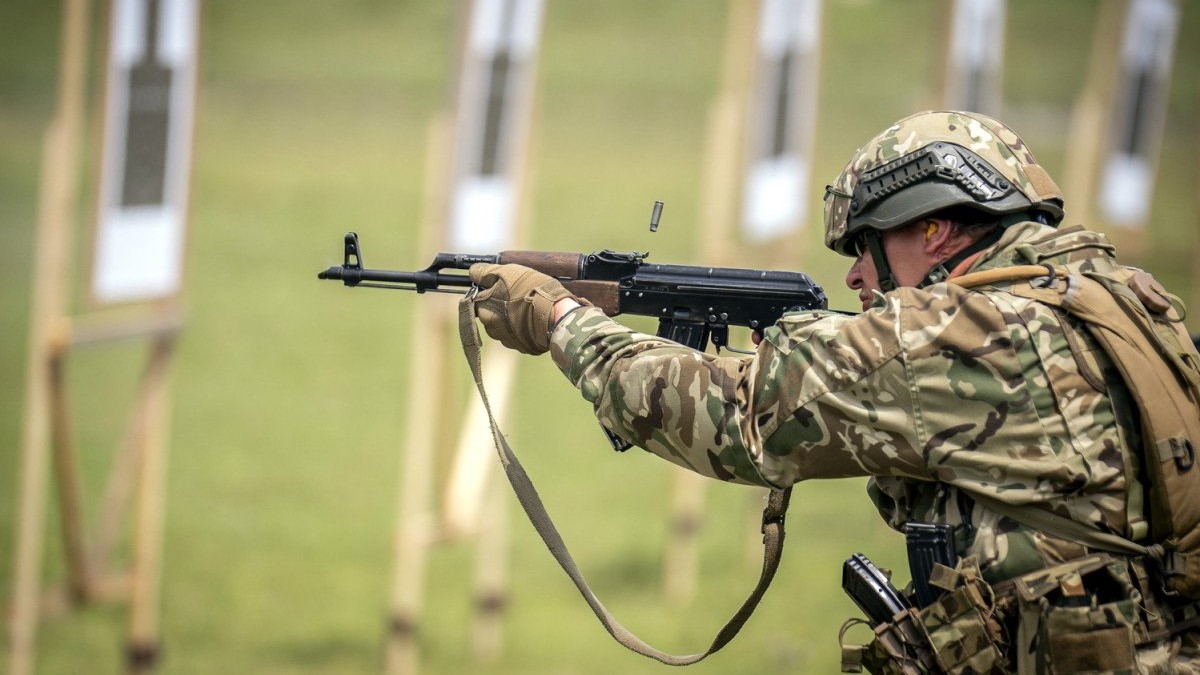An increasing number of individuals are signing up for the Territorial Defence Reserves in various parts of the country, further strengthening the Hungarian Defence Forces’ reserve corps, Defence Minister Kristóf Szalay-Bobrovniczky announced on Monday in Gödöllő.
During a press conference at the barracks of the Hungarian Defence Forces’ Vitéz László Reviczky 1st Territorial Defence Regiment, Szalay-Bobrovniczky reminded the audience that years ago, the Hungarian government embarked on a military development programme. This initiative was driven by the need for a strong military capable of protecting the lives, property, and culture of Hungarian citizens, as well as fulfilling the country’s NATO obligations.
He stated that over the past two years the methods of recruitment and raising awareness have been revamped to allow more Hungarians to become familiar with the Defence Forces. He recalled that the ‘Man for Iron’ campaign in the professional forces focused on recruiting young people with specialized skills as professional soldiers, to operate the newly acquired modern, high-quality, and in many cases, digital equipment.
The ongoing ‘I Love It, I Protect It!’ campaign is aimed at encouraging citizens to join the Territorial Defence Reserves.
The campaign spans the entire country and seeks to reach those who are interested in national defence, feel capable and determined to contribute to Hungary and the nation, while also wanting to maintain their civilian jobs or continue their studies. The campaign is designed to align their commitment to the reserves with their civilian life. The press conference coincided with a preparatory firearms training session, which is part of the training programme—a five-week module that can be completed at weekends. Currently, basic training is taking place in 21 locations across the country, he noted, adding that Territorial Defence Reserves will primarily serve locally, mainly in supportive and supplementary roles to the professional military forces. Szalay-Bobrovniczky also mentioned significant changes to remuneration. Those who join the Hungarian Territorial Defence Forces receive a gross annual availability allowance of 600,000 forints, which is paid in monthly instalments of 50,000 forints.
Upon signing the contract, they receive an additional gross payment of 150,000 forints, and a recommendation bonus has also been introduced.
Thousands of Young People Join the Military as Reservists
Lieutenant General Attila Takács, Deputy Chief of Territorial Defence for the Hungarian Defence Forces, reported that since the launch of the ‘I Love It, I Protect It!’ recruitment campaign in June, which specifically targets reserve soldiers, thousands of young people have expressed interest, and approximately 2,700 have already signed up. The General also discussed the establishment of a so-called territorial defence capability within the framework of the Hungarian Defence Forces’ military development. This initiative involves the creation of a battalion in each county, with three counties forming a regiment. This regiment is intended for reservists who have the time and determination to undergo military training.
The organization is based on a territorial principle and builds on local patriotism, he emphasized, as the ‘I Love It, I Protect It’ concept aims to prepare young people to be able to defend their local area and environment if necessary, or to respond decisively and in an organized manner in the event of a crisis.
He also noted that the recruitment campaign has not only impacted the reserve service but has also doubled the number of applicants for professional military contracts.
Read more on the Hungarian Territorial Defence Forces:








